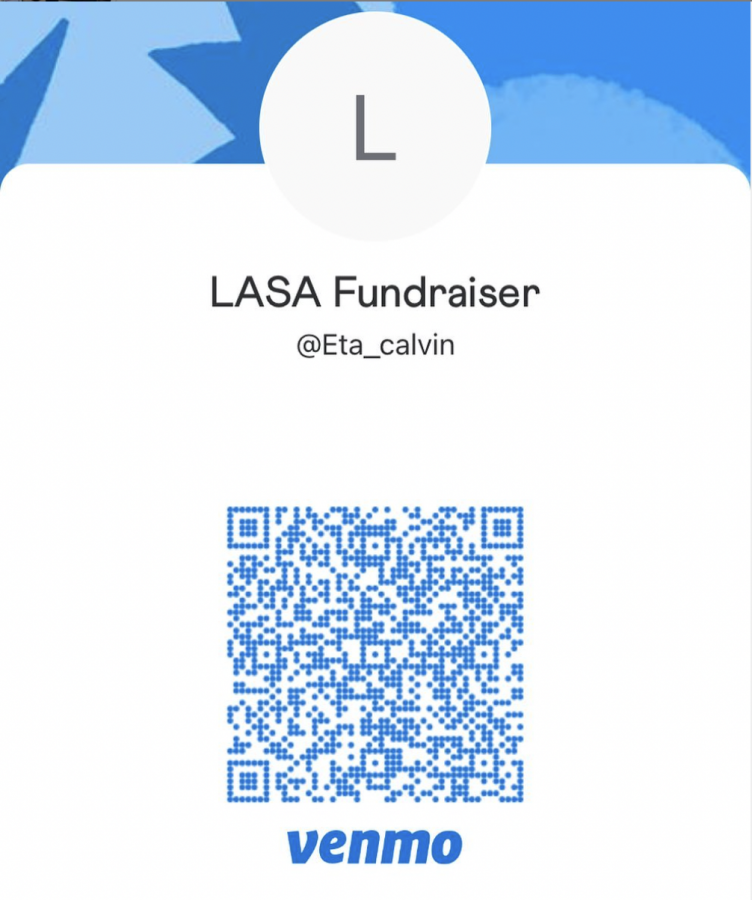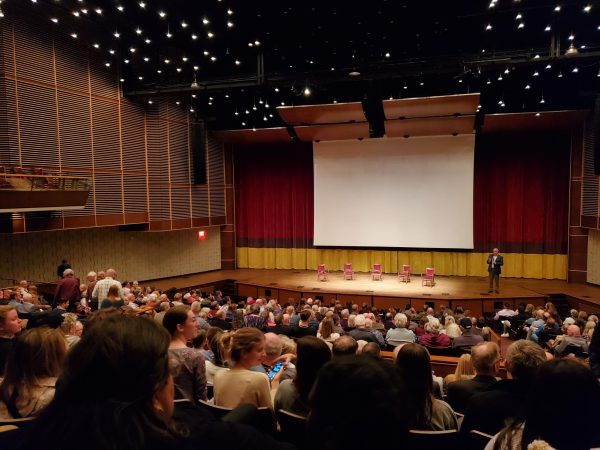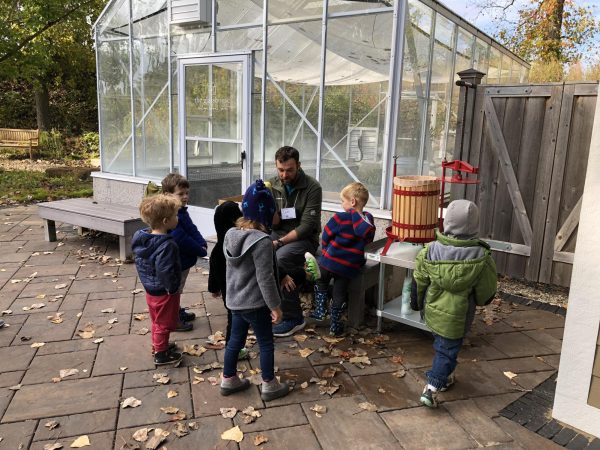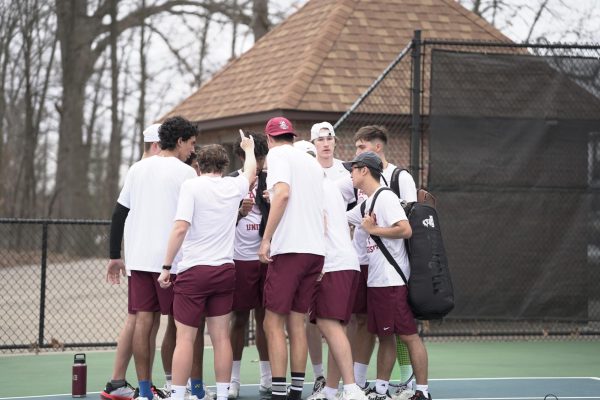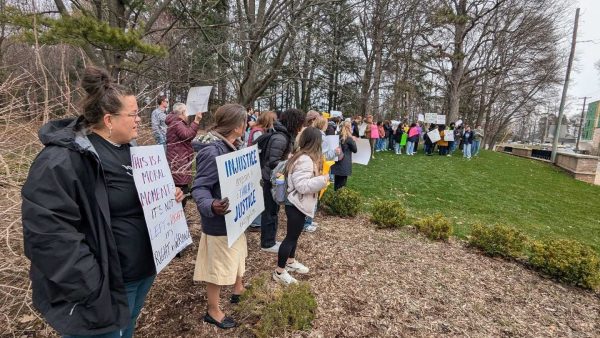LASA raises nearly $7,000 for hurricane victims
When Jose Muñoz, a sophomore studying engineering, saw photos of damage done in Honduras by Hurricanes Eta and Iota, he knew he could not just stand by and watch. Muñoz, who is president of the Latin American Student Association at Calvin, channeled his feelings of distress for his home country into action.
Along with LASA’s leadership team, Muñoz began a fundraiser to collect money and supplies for those affected by Hurricane Eta. “It was really, really bad—I felt bad if I didn’t do something, so we just went out and did it,” said Muñoz.
Eta hit northwestern Honduras on Nov. 3, 2020, causing widespread flooding that drove millions out of their homes and onto their rooftops, according to The Guardian. San Pedro Sula, the second-biggest city in Honduras, was most affected by the storm.
“You couldn’t even land in the airport—it was so flooded that you couldn’t see the second story of the building,” said Enma Leiva Caballero, vice president of LASA.
Two weeks later, disaster struck again: Hurricane Iota blew through Honduras, wreaking havoc on communities that had been left in ruins by Eta. According to The Guardian, many areas were still flooded from Hurricane Eta when Iota hit. With little government aid, many Hondurans were left for days on their rooftops without food and water, said Caballero. Though the exact number of victims is not known, there have been 94 reported deaths and 8 disappearances associated with the hurricanes in Honduras, according to El Heraldo.
Eta and Iota are the worst storms to hit Honduras since Hurricane Mitch in 1998, according to The Guardian. The economic loss from both storms could amount to around 40% of the nation’s GDP.
Economic analysts say that the financial damage caused by the storms, coupled with the COVID-19 pandemic, could raise poverty rates by 10%, according to El Comercio. This would mean that over 70% of Honduras’ population would be impoverished. The economic crisis has caused a recent spike in emigration, according to Amnesty International.
“They lost everything, so why should they stay there? Maybe they will find an opportunity here,” said Caballero.
Even after the flood waters subsided, health crises still abounded for Hondurans in San Pedro Sula. Dead animals and stagnant pools of water brought the worry of malaria and leptospirosis alongside worries about COVID-19, according to Amnesty International. Though relief organizations and public shelters are providing COVID-testing and isolating patients as best as is possible, the lack of shelter and widespread damage make mitigating risk quite difficult.
For Muñoz and Caballero, the hurricanes were not a distant issue. Both students are from Honduras and knew people who were affected by the natural disasters. When Caballero traveled home in November, she had to wait a week before making it back to her hometown.
A bridge that connected two towns along the way had been completely destroyed by Eta. Muñoz knew of several villages near his hometown that were devastated by the flooding. “It was really tough looking at the stuff that was there when I came, knowing that it’s not going to be there when I go back,” said Muñoz.
These students soon set to work to raise money for those affected by the hurricanes. “Even though we were here and felt like we couldn’t do anything, we knew we had to try and help,” said Caballero. It started out with a Go-Fund Me page, started by LASA and Student Senate. Ten people donated to this page, raising a total of $1,235. Next, LASA created a Venmo account where it was easier for people to donate.
“We asked people if they wanted to donate money, and we found two sponsors who were going to double however much we raised,” said Enma.
One donor was World Renew, and another preferred to remain anonymous. Since beginning the fundraiser in November, LASA has raised a total of around $6,900 in donations, which were to be distributed by three organizations: World Renew, Isaiah 61, and Association for a More Just Society (ASJ).
LASA also partnered with Mayan Buzz Café, a local Grand Rapids coffee shop, to collect hygienic supplies and canned goods to send to hurricane victims. The supplies were sent out in December.
Following the success of their donuts and Jarritos fundraiser in early March, LASA is planning another fundraising event to sell food. Muñoz and Caballero hope to partner with a Calvin startup for the fundraiser, which will take place next week. “It’s an ongoing need, so we need to keep creating awareness for this issue,” said Caballero. “It’s not just like you give one thing and then they’re fine—these people lost everything.”
Muñoz is proud of the LASA leadership team’s hard work on the fundraising efforts, and is grateful for the support of the Calvin community. “It’s just invaluable for me how much the Calvin community has thought about their fellow brothers and sisters in Honduras,” said Muñoz. “I’d also encourage them to continue in this—there’s a lot more to be done and a lot more we can do.”
Those interested in donating can do so by scanning the QR code.




